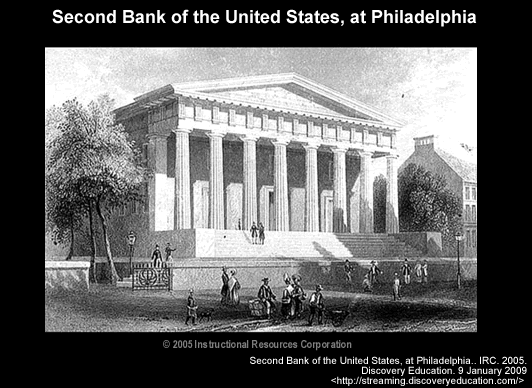The Bank War

The Second Bank of the United States, at Philadelphia. The period after the War of 1812 saw the renewal of several of Alexander Hamilton's plans for economic nationalism. The most important of these was the revival of a national bank, created with a 20-year charter, which was passed by Congress almost without opposition in 1816.
As Jackson neared the end of his first term in office, he became consumed by an ensuing Bank War. His primary challenger in the upcoming 1832 election, Henry Clay, had forced Jackson to make a premature decision regarding the Second Bank of the United States. In the Western and Southern regions of the country (Jackson's main supporters) the Bank was widely unpopular because of its tight lending practices. However, Northeastern residents widely approved of the Bank for its regulation practices that had a stabilizing effect on the economy. As predicted, Jackson vetoed the Bank, thereby killing the Bank upon its date of expiration. As you will learn, this decision had many lasting effects on the economy as a whole.
As you read or watch the presentations below, answer the questions provided for 7.09 Bank War. Once finished, send the work to the 7.09 Bank War Dropbox.
Did you know?
Did you know that Andrew Jackson was the only president to pay off the national debt?